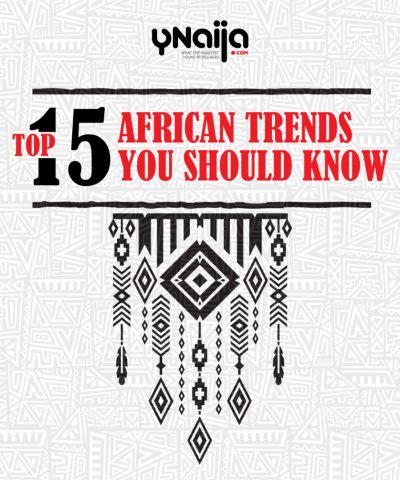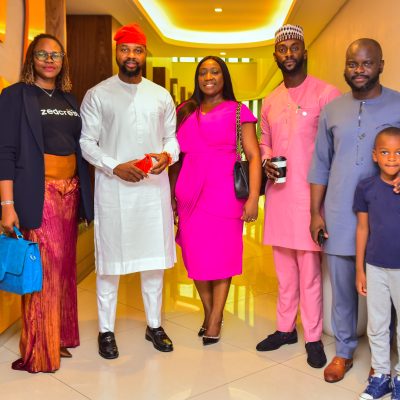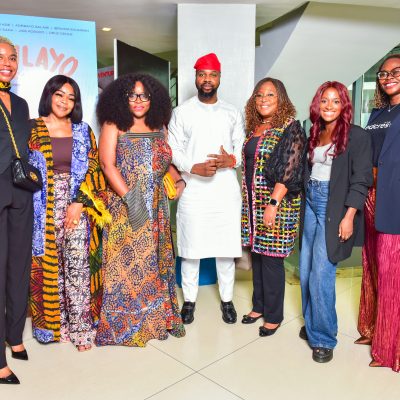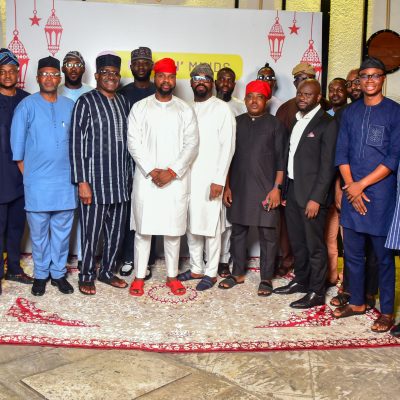
by Isime Esene and Edwin Okolo
The business of prediction is tricky, even often foolish. But the business of paying close attention to reality – what is happening today – and what that means for the present is almost indispensable. Too many people don’t spend enough time listening and watching – but today often tell us all that we need.
Across technology, entertainment and politics, vibrant local economies mixed with globally connected youth and tainted by a growing middle class of some sort means the West’s auto-influence is waning and Africans are finally exporting their own cultures and experiences to global audiences and markets worn down by homogeneous offerings and exclusion.
Below are 15 trends that will drive 2020, based on the past year of paying attention we think will influence the continent’s growth and perspectives in the coming decade.
Top trends in the work place
One global office
To understand how drastically workplace culture has changed, one only needs to look at Africa in the ’70s. Colonial interests in the continent meant that the major industries across Sub-Saharan Africa were export-focused and structured to benefit western interests. Primary production with a focus on export was emphasized over domestic manufacturing. Only after Independence did African countries begin to adopt import substitution policies to increase local productivity and reduce dependence on expensive imports for relevant needs. These policies largely fail and continue to fail as evinced by Nigeria and Angola’s hyper dependence on exporting unrefined crude as their primary source of GDP.
One major effect of this shift in policy was the growth of local industries and corporations and the need to improve productivity through seamless communication. Privatization as a way to accelerate economic growth and infrastructural developmenthas also been prevalent in the continent and the introduction of these new foreign-owned entities has led to the adoption of globally accepted practices, including unified communications.
Being able to communicate with superiors in other countries and collaborate seamlessly on projects across time zones is now a requirement for any progressive business. The focus of work organizations, especially in Africa where there is a significant demand for technical skills is to outsource this demand to foreign partners in real-time.
2019 saw a mass adoption of productivity tools that unify employee communications through cloud-based software solutions. Microsoft Teams and Slack are popular choices, and tech companies like Google and Facebook are jumping into the fray with products like the Google Suite and Workplace by Facebook. These forays are successful too, with Google Suite gaining 2 million new paid subscriptions between 2017 and 2018, bringing its global total to 5 million. As more companies look to Africa as the new frontier for ‘cheap’ labour, the demand for unified communications will only increase.
Digital real estate
For the second half of the 20th-century countries in Africa tried to pivot their economies away from agriculture and primary production as a way to compete with an industrialized first world. But the prohibitive costs of infrastructural development made it near impossible to make the shift. Digital transformation made it possible for businesses to leapfrog the financial implications of infrastructural development, especially for businesses with significant data storage needs, and outsource their troubleshooting and archiving needs to remote experts. As more businesses compete on a global stage, digital transformation is no longer an option for African businesses, it’s what’s needed to survive.
From data security to migrating operations to the mysterious ‘cloud’, business-owners see digital transformation as crucial for not only safeguarding a company’s online data but also future-proofing their companies by securing assets for the digital workplace. They are also increasingly willing to pay significant sums of money to access the massive data banks already amassed by technology giants like Google and Facebook and using that data to drive their own business agendas. Cambridge Analytica is a contemporary example of how a relatively small piece of digital real estate can yield outsize value.
South African technology industry research and advisory firm BMIT has spent time analyzing the rate of adoption of digital solutions in South Africa and the rest of the continent and estimates that the cloud market in South Africa will have grown to $182 million by 2023, allowing companies to store greater amounts of data as they grow, and also freeing up company hardware for more ambitious corporate experiments. Digital real estate is a valuable product, and investment in these products will only grow in 2020.
Flexing those muscles
Microsoft founder, Bill Gates was one of the first to recognize the positive benefits a better work/life balance can have on work productivity. In a widely shared quote that many have come to take as gospel, he noted: “The competition to hire the best will increase in the years ahead. Companies that give extra flexibility to their employees will have the edge in this area.” Gates couldn’t have predicted how well his quote would define the world of work in the post-millennial age.
Advances in automation and machine learning have rendered many traditional working roles obsolete and accelerated the transition into specialized work. Social media and digital networks have created new occupations that operate outside of the traditional conventions around work and have shifted the focus from a routine to results.As a result, more workers are surreptitiously engaging in flexible work or outrightly demanding it as a feature of their employment package.
Flexible working encompasses the option to work remotely, a choice of working hours that are more in tune with personal productivity, and access to a co-working environment that’s closer to an employee’s home (so they can reduce their daily commute or eliminate it entirely).
The 2019 Jobberman report chronicling the top 100 companies to work in Nigeria featured PWC, Andela, KPMG, Deloitte and Guaranty Trust Bank in its top 20 companies, preceded only by oil and gas multinationals as the best companies to work in. These companies are distinguished by their flexibility with work schedules and their attentiveness to the needs of their employees. The industry might have not fully caught on but employees are clearly voting as to what kind of employer they will gravitate towards in the coming years.
For younger generations in particular, who have grown up in a gig economy and remote working as a standard, a flexible employer is the norm and as such, they demand flexibility in return.
Top trends in technology
Another piggybank
An unintended consequence of globalization is the elevation of consumerism, the idea that wants and desires of the consumer must be indulged, no matter how niche or frivolous. In and of itself, consumerism is neutral, it simply elevates the interests of the consumer as paramount. In the case of economic systems in Africa, consumerism has had a net positive effect on its nascent economies. Entertainment and digital media have acted as a leveler for the interests of young people across the world, competing with geographically-specific cultural influences for the attention and spending power of the millennial and Gen-Z populations.
As these populations have embraced consumerism and the social markers that access to material goods provide, they have sought ways to circumvent traditional economic barriers to cross-continental trade. One of the recurring problems is access to payment options. Across Africa, poor economic ratings, corruption, and fraud has forced many private foreign service and product providers to ‘blacklist’ developing countries in Africa to access their platforms. Local trade is also limited by a lack of physical and digital infrastructure to ease the process of banking.
Enter financial technology companies. The proliferation of Fintech companies across the continent has been unprecedented. From Nigeria’s PiggyVest, Cowrywise, Paystack, and Flutterwave (who all offer payment options and underwrite international business transactions) to MPesa in Eastern Africa to Jumo and the Sun Exchange in South Africa, just two of dozens of Fintech startups in the region who have raised a cumulative $168 million in venture funding as at December 2018. We will only see more Fintech solutions introduced into the market as the African diaspora looks to the continent for recreation and relocation.
All about the data
In late 2019, Facebook hit its 2.3 billionth user. This technological feat seemed nigh impossible just a decade before when Facebook was a fledgling app, unsure of the power it would wield in the coming decade. Now Mark Zuckerberg is one of the world’s most powerful men, sitting atop a billion-dollar business with enough data to essentially connect the plan. But even Facebook’s wealth and his influence cannot guarantee him the thing he needs the most; his next billion subscribers. Facebook isn’t the only mega corporation that is looking to Africa for customers who will serve both as consumers of their products and an auxiliary product to sell to the advertisers that provide revenue to keep these businesses successful.
Subscribers to a service of any kind means behavioural data on the subscriber organically sourced and valuable to advertisers and governments alike. But users, especially in Africa are wary of the ‘internet’ and often use these platforms in ways that make data mining difficult. Enter specific data mining apps. Audience focused trends like the #10YearChallenge and the #FaceApp challenge are among two of dozens of entertainment-oriented app with a secondary function of harvesting relevant data about users for commercial and political purposes.
One of the biggest scandals of the last decade was the Cambridge Analytica expose that revealed an American data mining research company had used data mined from a fairly innocuous entertainment app to influence general elections across the world. A whistleblower might have exposed the firm, but it is only one of hundreds of similar organizations’ data mining information on the next ‘big global market’ to create strategies that skew events in favour of certain outcomes.
Money quick to enter
Across Africa, it is finally dawning on governments and private corporations that a huge chunk of the continent’s market is unbanked and unable to access basic loans, contribute to traditional savings accounts or engage the benefits that corporate banking offers lower and upper-middle-class groups. Through official policies or private initiatives and sufficient incentives from the United Nations, the entire continent has spent the last four years mobilizing ways to bring the unbanked into the fold and finally connect the untapped potential of this market to the consumer markets that can profit off an infusion of new customers.
The innovations have included banks connecting the continent through cross-regional expansions (Ecobank), cross-continental mergers (Stanbic IBTC Bank) and the decision to allow Telecommunication companies to enter the market by offering them agent licenses to allow them to operate as micro-finance banks. Other innovations include text-based and voice-based banking to accommodate users who are either illiterate or have some disability that limits their ability to use traditional banking methods. Virtual banking is another frontier in the push for financial inclusion with offerings like ALAT and Kuda Bank in Nigeria eliminating physical banks from their processes.
Top trends in entertainment
Don’t mess with Big Brother
The Big Brother franchise is the most consistent reality television show on the continent, with franchises that have provided representation for niche nations like South Africa, Angola and Nigeria and continent-wide franchises that sought to connect the entire continent by having ‘ambassadors’ from 12 to 21 English speaking countries on the continent compete for a cash prize. Organized by Endemol and Multichoice, the Big Brother franchise has become the most lucrative celebrity churn for both organizations, with viewers of the show in Nigeria spending an unprecedented $19 million on votes in the final week of the show alone.
In 2019, the organizers of Big Brother spent an estimated $1 million moving the franchise from its primary base in South Africa to Nigeria to fully capitalize on the current global interest in Nigeria. The franchise in Nigeria has had the ripple effect of creating instant celebrities out of its annual contestants who continue to drum up media interest in the show long after each yearly franchise ends and the promotional cycle for the next franchise begins. It has gained such influence that four of the contestants from the 2019 show returned from Europe, South Africa, and America to audition for the show. Its influence is not waning anytime soon.
It’s Africa’s party and she’ll host if she wants to
In 2016, a little known Nigerian media outfit launched with an offline music festival. Nativeland virtually unknown at the time but its founders had a singular vision, to make Nativeland the premier destination for Black British rappers and musicians looking to connect with their African audiences. The first year brought Skepta, a Nigerian born, UK raised rapper with outsize impact in the UK grime scene and helped catapult Nativeland into cult status.
Four years later, the annual ‘Detty December’ informal festival calendar of concerts and associated events in Nigeria was rife with celebrity appearances. From Brooklyn rapper, Cardi B to Texas-born phenomenon Mega the Stallion and cult rapper Future, dozens of high profile American and British performers flew into the country to perform highly promoted sets before jetting off to Ghana to perform at Afronation or participate in the country’s Year of Return Celebrations. Elsewhere in South Africa, Solange Knowles and a whole roster of Alternative American musicians performed at a celebration of alternative black culture.
This level of interest in Africa is partly influenced by the increasing nationalistic responses Western nations are having to immigration from Africa, South America, Asia, and the Caribbeans and the emergence of an African middle class, earning forex from Western companies and hungry for social capital. As more African countries seek to profit off the desire of the African diaspora to reconnect with home and local clamour for global entertainment, we’ll see this import of American performers and export of African culture only increase.
Top trends for retail
Influence me, small small
Advertising and corporate communication giants have become large and marginally effective monoliths across Africa, financially viable only for the biggest and most powerful corporations operating on the continent. But Africa’s new economy is largely small and medium scale industry-driven and that demographic is looking to cheaper and more effective alternatives to reach their target audiences.
Enter social media influencers. A trend that surfaced in the late 90’s as an unintended consequence of forums and the weblog, and quickly expanded to include every facet of the consumer experience, influencers manage to incorporate personal branding, social capital, advertising, content creation. and distribution and consumer feedback/analytics into a compact and easily accessible package. The proximity influencers have to fans and the speed with which messages from brands can be delivered to a target audience have elevated the influencer’s value to brands.
In Nigeria however, brands are realizing that the scramble for social media has left many perceived macro-influencers (public personalities with followers above the 100,000 mark) incapable of engaging their audiences sufficiently and providing necessary turn over. As such they are turning their focus to younger macro-influencers whose growth into influence is easily trackable and their engagement with their audiences genuine. In Nigeria Maraji and in South Africa LaSizwe have been able to leverage their micro-influencer status and niche brands into lucrative careers.
Pop-Up Central
The idea of a pop-up, a dedicated offline experience curated by an individual or business willing to connect with a buying audience but unwilling to commit to the long term costs of physical merchandising has infiltrated the retail industry. From music pop-ups like Burna Boy’s Burna Bank pop-up merch store (used as part of the rollout for his African Giant album roll out), to the Ditto Africa Pop-Up at the Wings Tower in Lagos to introduce the UK-based luxury brand to Nigerian design labels and upper-middle-class buyers, to Sports ‘Pop-Ups’ like the friendly exhibition matches organized in support local causes outside of the traditional football calendar, the idea of a truncated but immersive experience has gained ground as a viable alternative to a long term commitment.
Across Africa, virtual brands whose operations are primarily digital are using the pop-up experience in collaboration with financial institutions or private corporations to create mutually beneficial but minimally tasking connections with their target buyers. Stellar examples of this are the GTB Fashion Weekend and the bi-annual Eat Drink Festival both in Lagos and Afropunk Festival in Johannesburg in 2019. Pop-up shops are expanding beyond brand awareness to provide shoppers with a curated experience for luxury products and tailored services.
Welcome to China Town
When political analyst Dambisa Moyo talked about China rising as a global superpower and partner to Africa in its race to accelerate infrastructural development and escape its third-world status,she could have scarcely predicted how quickly her predictions would become truth. Over the last decade, China has spread its influence and wealth into Africa, partnering across the continent to handle major infrastructural projects, instituting cultural exchanges and investing in the continent through its China-Africa Development Fund, and venture capital fund that seeks to back innovation on the continent.
The last few years have proven the new superpower’s interest in the continent is not entirely altruistic as it weathers a major scandal in 2017 after it was discovered the new African Union Headquarters the country donated to the African Union had been thoroughly bugged with surveillance equipment that transmitted all conversations shared within the organization to servers in China, a violation of the trust the continent had placed in China’s gesture. But with 10,000 Chinese owned firms operating in China, lower interest rates on Chinese loans and Chinese scientific and engineering expertise on offer, many African countries will only strengthen their ties to the Red Sun in the coming years.
Virtual retail
The face of retail across the continent has changed drastically in the last decade. In the early 2010s, systems like the Igbo apprentice system were vital to introducing young neophytes into retail because of the prohibitive costs of starting a brick and mortar business. Government licensing, legal and illegal taxation and insecurity were secondary concerns that business owners had to consider while situating their physical stores and finding sustainable paths to grow their businesses. Businesses were limited by geography and situational challenges.
However as social media increased connectivity, it also eliminated many of the prohibitive costs that kept young people from experimenting with small businesses. Virtual solutions and lowering shipping costs have created an ecosystem of White Label brands that outsource the process of fabrication, mass production and shipping of their products to manufacturing countries like China, offloading those costs to consumers and leveraging their social capital and large networks of followers to move product. This business model is thriving across Africa where social capital is driving consumer habits and entrepreneurship as a subset of the gig economy is considered trendy.
Other top trends
You gotta have faith
One of the major trends predicted by analysts about the millennial and Gen-Z populations is that they would reject traditional employment for the financial flexibility of the gig economy where independent contracting, flexible work hours and the freedom to serve multiple organizations simultaneously would be prized over the ‘boring’ stability of tenured work. This idea is challenged every time a major organization that ticks all these boxes on paper is forced to implement mass retrenchments to satisfy shareholders or micro-focus business strategy.
One of Nigeria’s major financial institutions and a major employer of labour instituted mass retrenchments in January 2020, officially to relieve staff in roles that had become redundant as the company embraced digital transformation, a decision that was met with widespread backlash. This backlash is consistent with decisions of this nature, whether it is with Andela who is forced to retire staff to meet its foreign partners’ demands, or Jumia Nigeria who engaged in mass retrenchments across Africa as its bid to operate as an openly traded country fails.Protests against the poor conditions in South Africa’s Coal and Diamond mines have persisted for as long as the mining industry has operated in the country, strikes are common as Kenyan professionals seek to force its government to honour contractual obligations.
The thousands of applications that are received whenever public service opening are advertised contradict every suggestion that African youth are embracing the gig economy and economic flexibility as fast as we’re made to believe.
Out of Africa
Mass emigration from sub-Saharan Africa has been a consistent global topic for as long as the continent gained independence. Interference from former colonizers and corruption, nepotism and misuse of public funds has kept economic and infrastructural progress on the continent stunted and each consecutive generation of youth disillusioned and determined to escape to countries with structure and opportunities.
A new spike in illegal migrations began in 2017 and has steadily increased with each year. Repressive policies across the continent will only see these numbers increase in 2020, with Nigeria leading the charge as the policies of its incumbent government and welcoming policies from countries like Canada and Australia convince Africans (particularly skilled professionals and young families) to make the investment in migrating legally or illegally. These illegal migrations have already led to abhorrent events like the unfortunate deaths of 26 Nigerian girls who drowned as they were being illegally trafficked from Libya to Italy, and the illegal slave trade in Libya and much of the Middle East.
The promise of a better life will push thousands in 2020 to emigrate through scholarships, professional work agreements, and road treks across the Sahara to reach the West.
*This piece is woven from intelligence out of the Culture Intelligence (Ci) team at RED. Ci’s methodology is based on five key elements: random sampling surveys, meta-analysis of existing quantitative data, our proprietary focus group model, data points from the backends of our media products (TV, web and social) and The Resonance Test filtered via our curated panel of producers and editors. Intelligence customized for clients includes access to raw data.




